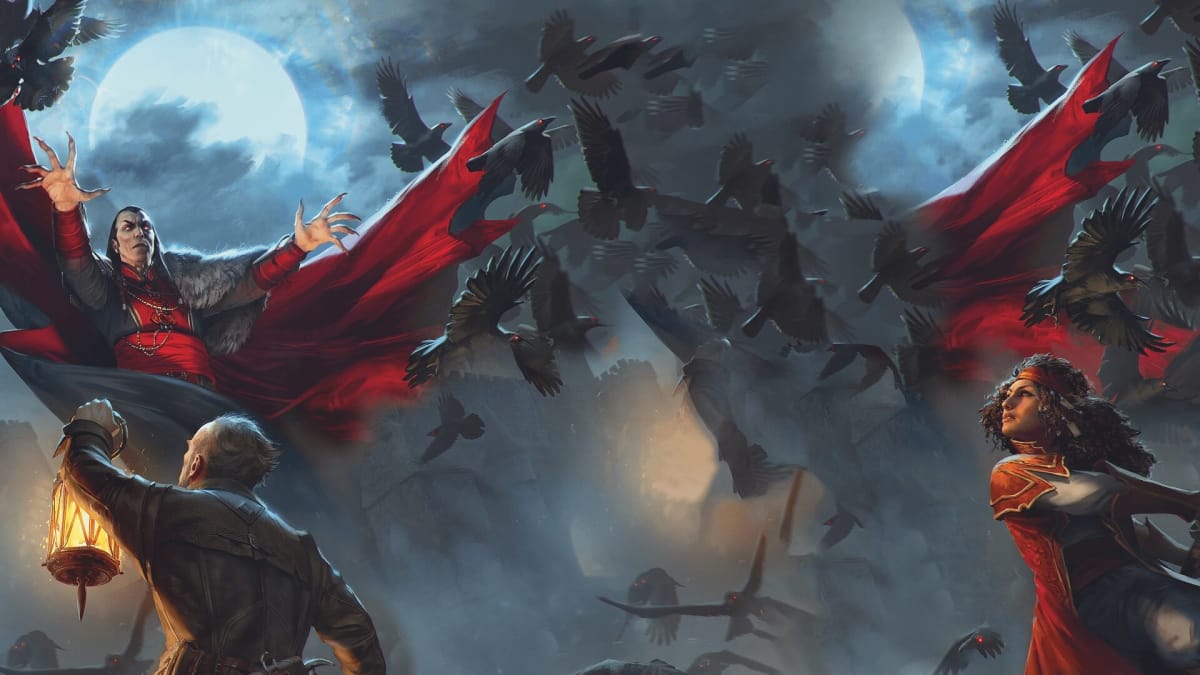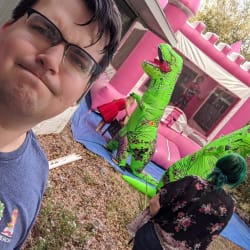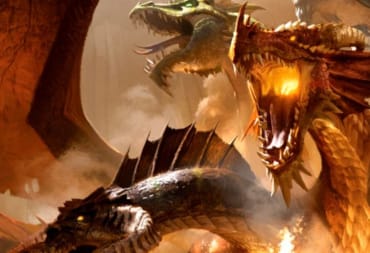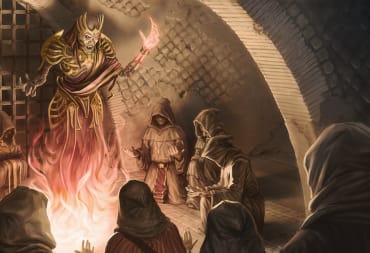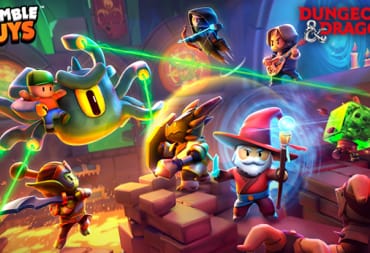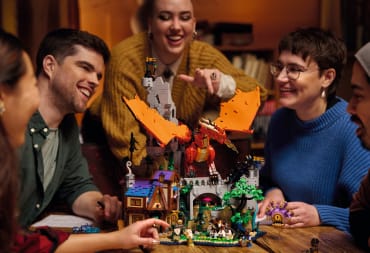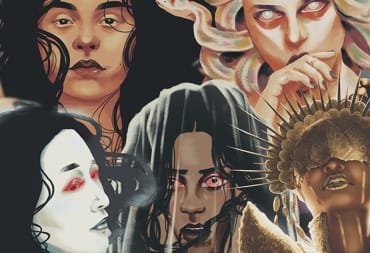A lot of the lifeblood of Dungeons & Dragons isn't found in the games you play at home, or the campaign books routinely released through the year, but in the community of talented content creators putting Dungeons & Dragons out into the world. From the well-known and wildly popular series like Critical Role or Dimension 20, all the way down to the humble author with some free time to publish a module on DriveThruRPG, all of this is possible due to the Open Gaming License released by Wizards of the Coast in 2000. This morning more details on the contents of the new OGL 1.1 were released and for those very same third-party creators that have aided in the D&D boom, it could spell out a sticky situation.
What is the D&D OGL 1.0?
In 2000 the D&D OGL 1.0a was released. This was a short document that essentially said, as long as you agreed to abide by the OGL and include a copy of the OGL in works that use content from the D&D SRD, you were granted a "perpetual, worldwide, royalty-free, non-exclusive license". For a game like Dungeons & Dragons where any content can be homebrewed, and unofficial modules shared or sold around the world, this license has allowed creators to publish D&D content without the need to seek additional agreements from the property holder, Wizards of the Coast. This license has covered large-scale productions like Critical Role or the creation of an entirely new TTRPGs like Pathfinder, and allows any indie creator to publish their content digitally or physically.
How is OGL 1.1 changing what Third-Party Creators can do?
With the change from OGL 1.0 to 1.1 there are a lot of differences that will discourage creators from wanting to create Dungeons & Dragons-related tabletop content. One of the first things noted by Noah 'MyLawyerFriend" Downs, an attorney with a focus on IP in the TT and digital gaming industries, is that unlike OGL 1.0, OGL 1.1 is not an open license. With the addition of restricted sets of licenses for both commercial and non-commercial use this new OGL locks those who create content into a number of agreements that jeopardize their IP and their revenue stream.
While we wait for the full 9000-word OGL 1.1 to release, here are some key points from the analysis of the OGL 1.1 and how it will affect creators. By signing OGL 1.1:
A creator will need to report what they're working on to WOTC, report revenue if it's above $50,000, and if gross revenue is above $750,000 pay 25% of royalty to WOTC
For many projects where the gross revenue is above $750,000, there will likely not be 25% royalty to be paid out to account for the costs of publishing, printing, distribution, authors, editors, and artists. Where a lot of Tabletop revenue generation is done via crowdfunding websites like Kickstarter, MyLawerFriend also highlights that a Tabletop Kickstarter project could 'accidentally' overfund into the $750,000 range and suddenly a project that might have been popular and successful for those involved is now going to put the organizer in debt. At any point in time this arbitrary line in the sand could also be adjusted giving creators more room to breathe, or to close in on popular projects faster.
Interestingly a successful campaign through Kickstarter is the one place these popular projects will catch a break, as Wizards of the Coast have explained that as their "preferred crowdfunding platform. You will only pay a 20% royalty on Qualifying Revenue."
WOTC will receive rights to your works, be allowed to use/publish your works, and not have to pay the original creator any additional money
This note is fairly self-explanatory and doesn't need much more to highlight how this could be used nefariously.
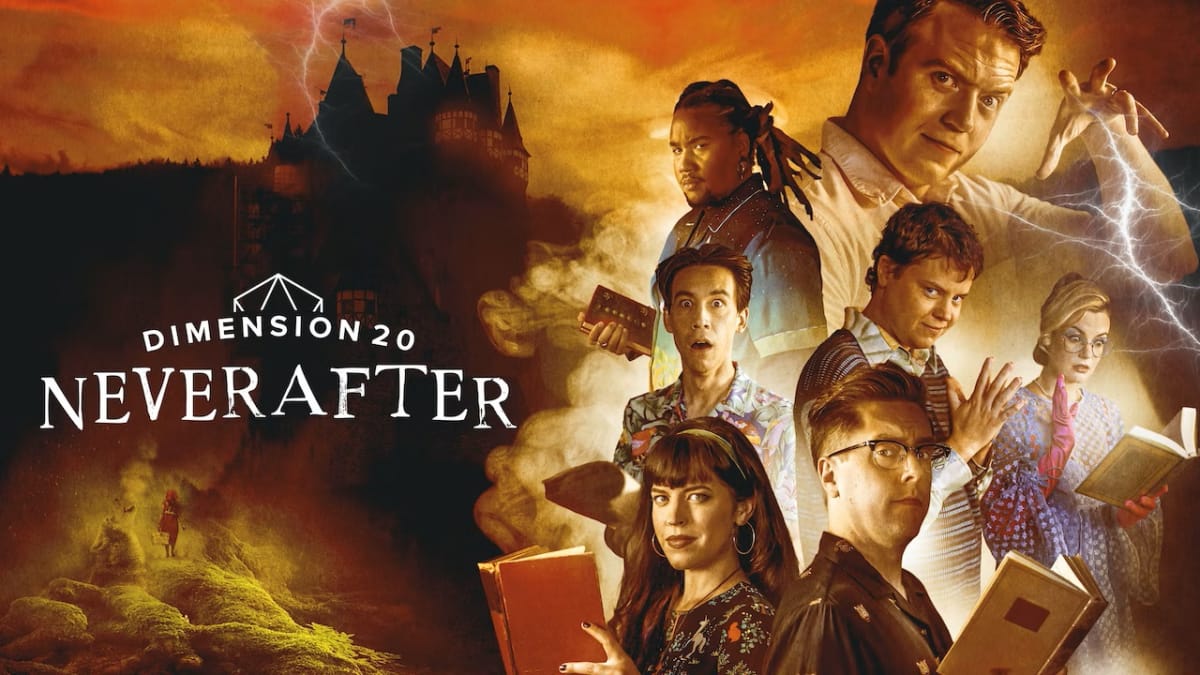
Are creators able to continue using OGL 1.0?
At the moment there is confusion as to what the validity of continuing to use OGL 1.0 is amidst the leak of OGL 1.1. As OGL 1.0 is perpetual, but not irrevocable, it's in WOTC's power to stop allowing creators to publish content under OGL 1.0. Interestingly, part of the agreement for OGL 1.1 is that it amends OGL 1.0 from an Open Game License to being "no longer an authorized license agreement." This change specifically contradicts section 9 of the original OGL.
9. Updating the License: Wizards or its designated Agents may publish updated versions of this License. You may use any authorized version of this License to copy, modify and distribute any Open Game Content originally distributed under any version of this License.
Wizards of the Coast justifies this change by explaining that the OGL was meant to "allow the community to help grow D&D" but that the shift to major corporations publishing D&D-related content is not what it was intended for. This later remark is likely a jab at Paizo and their Pathfinder TTRPG which was split off from Dungeons & Dragons 3.5 edition. Whether third-party creators will be able to keep using OGL 1.0 or OGL 1.1 as these two documents contradict one another is unfortunately something that's likely going to have to go to court before it is settled.
Is the OGL 1.1 all bad?
There are a few positive aspects of the OGL 1.1 that are noted by Linda Codega in Gizmodo's breakdown of OGL 1.1. One of those is wording related to the protection of the IP against technology that wouldn't have been predictable 20 years ago such as the blockchain or NFT minting. It's also reported that there's a strong stance against the creation of bigoted content to the point where a creator publishing work that is "racist, sexist, homophobic, transphobic, bigoted, or otherwise discriminatory" could have their agreement revoked rendering them completely unable to publish D&D content. This could be used in cases like we saw with TSR publishing bigoted materials in 2022.
While this story will undoubtably continue to develop over the upcoming weeks as larger content creators offer their voices or the full document gets released for public scrutiny at the moment it's not looking good. It was only last month at an investor meeting that Hasbro executives commented that the hobby has never been more popular, but that it was being under-monetized. At the time, this caused a stir as to what a correctly monetized vision of Dungeons & Dragons would look like but the assault on the creators earnings is certainly one of the worst possible outcomes.
Stay tuned to TechRaptor as we continue to monitor and update this story.
